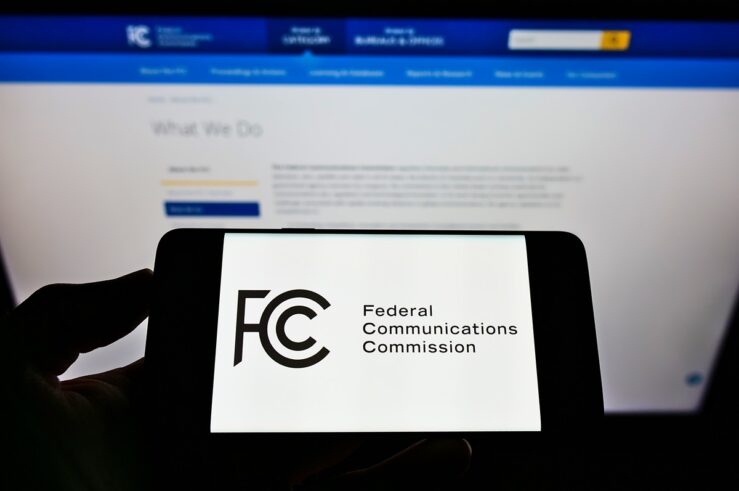Former TOTM blog symposium participant Joshua Gans (visiting Microsoft Research) has a post at TAP on l’affair hiybbprqag, about which I blogged previously here.
Gans notes, as I did, that Microsoft is not engaged in wholesale copying of Google’s search results, even though doing so would be technologically feasible. But Gans goes on to draw a normative conclusion:
Let’s start with “imitation,” “copying” and its stronger variants of “plagiarism” and “cheating.” Had Bing wanted to do this and directly map Google’s search results onto its own, it could have done it. It could have set up programs to enter terms in Google and skimmed off the results and then used them directly. And I think we can all agree that that is wrong. Why? Two reasons. First, if Google has invested to produce those results, if others can just hang off them and copy it, Google’s may not earn the return on its efforts it should do. Second, if Bing were doing this and representing itself as a different kind of search, then that misrepresentation would be misleading. Thus, imitation reduces Google’s reward for innovation while adding no value in terms of diversity.
His first reason why this would be wrong is . . . silly. I mean, I don’t want to get into a moral debate, but since when is it wrong to engage in activity that “may” hamper another firm’s ability to earn the return on its effort that it “should” (whatever “should” means here)? I always thought that was called “competition” and we encouraged it. As I noted the other day, competition via imitation is an important part of Schumpeterian capitalism. To claim that reducing another company’s profits via imitation is wrong, but doing so via innovation is good and noble, is to hang one’s hat on a distinction that does not really exist.
The second argument, that doing so would amount to misrepresentation, is possible, but I’m sure if Microsoft were actually just copying Google’s results their representations would look different than they do now and the problem would probably not exist, so this claim is speculative, at best.
Now, regardless, I doubt it would be profitable for Microsoft to copy Google wholesale, and this is basically just a red herring (as Gans understands–he goes on to discuss the more “innocuous” imitation at issue). While I think Gans’ claims that it would be “wrong” are just hand waiving, I am confident it would be “wrong” from the point of view of Microsoft’s bottom line–or else they would already be doing it. In this context, that would seem to be the only standard that matters, unless there were a legal basis for the claim.
On this score, Gans points us to Shane Greenstein (Kellogg). Greenstein writes:
Let’s start with a weak standard, the law. Legally speaking, imitation is allowed so long as a firm does not violate laws governing patents, copyright, or trade secrets. Patents obviously do not apply to this situation, and neither does copyright because Google does not get a copyright on a search result. It also does not appear as if Googles trade secrets were violated. So, generally speaking, it does not appear as if any law has been broken.
This is all well and good, but Greenstein goes on to engage in his own casual moralizing, and his comments are worth reproducing (imitating?) at some length:
The norms of rivalry
There is nothing wrong with one retailer walking through a rival’s shop and getting ideas for what to do. There is really nothing wrong with a designer of a piece of electronic equipment buying a rival’s product and studying it in order to get new ideas for a better design.
In the modern Internet, however, there is no longer any privacy for users. Providers want to know as much as they can, and generally the rich suppliers can learn quite a lot about user conduct and preferences.
That means that rivals can learn a great deal about how users conduct their business, even when they are at a rival’s site. It is as if one retailer had a camera in a rival’s store, or one designer could learn the names of the buyer’s of their rival’s products, and interview them right away.
In the offline world, such intimate familiarity with a rival’s users and their transactions would be uncomfortable. It would seem like an intrusion on the transaction between user and supplier. Why is it permissible in the online world? Why is there any confusion about this being an intrusion in the online world? Why isn’t Microsoft’s behavior seen — cut and dry — as an intrusion?
In other words, the transaction between supplier and user is between supplier and user, and nobody else should be able to observe it without permission of both supplier and user. The user alone does not have the right or ability to invite another party to observe all aspects of the transaction.
That is what bothers me about Bing’s behavior. There is nothing wrong with them observing users, but they are doing more than just that. They are observing their rival’s transaction with users. And learning from it. In other contexts that would not be allowed without explicit permission of both parties — both user and supplier.
Moreover, one party does not like it in this case, as they claim the transaction with users as something they have a right to govern and keep to themselves. There is some merit in that claim.
In most contexts it seems like the supplier’s wishes should be respected. Why not online? (emphasis mine)
Where on Earth do these moral standards come from? In what way is it not “allowed” (whatever that means here) for a firm to observe and learn from a rival’s transactions with users? I can see why the rival would prefer it to be otherwise, of course, but so what? They would also prefer to eradicate their meddlesome rival entirely, if possible (hence Microsoft’s considerable engagement with antitrust authorities concerning Google’s business), but we hardly elevate such desires to the realm of the moral.
What I find most troublesome is the controlling, regulatory mindset implicit in these analyses. Here’s Gans again:
Outright imitation of this type should be prohibited but what do we call some more innocuous types? Just look at how the look and feel of the iPhone has been adopted by some mobile software developers just as the consumer success of graphic based interfaces did in an earlier time. This certainly reduces Apple’s reward for its innovations but the hit on diversity is murkier because while some features are common, competitors have tried to differentiate themselves. So this is not imitation but it is something more common, leveraging without compensation and how you feel about it depends on just how much reward you think pioneers should receive.
It is usually politicians and not economists (other than politico-economists like Krugman) who think they have a handle on–and an obligation to do something about–things like “how much reward . . .pioneers should receive.” I would have thought the obvious answer to the question would be either “the optimal amount, but good luck knowing what that is or expecting to find it in the real world,” or else, for the Second Best, “whatever the market gives them.” The implication that there is some moral standard appreciable by human mortals, or even human economists, is a recipe for disaster.




